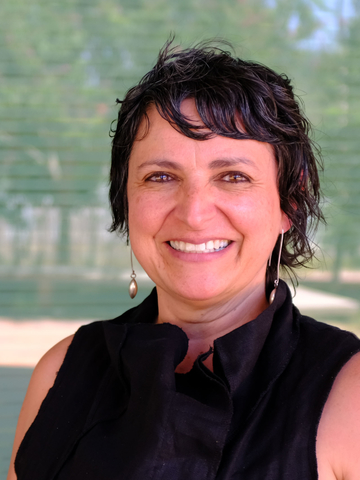Katheryne B. Willock Head of Special Collections
reyesv@arizona.edu
Special Collections C211
(520) 307-2774

Assistant Librarian, Borderlands Curator
albafernandez@arizona.edu
Special Collections C211


Photograph of 1968 NAACP Tucson carnival from the Jack Sheaffer photographic collection.
The Borderlands are both geographical and cultural spaces. This fluid space between worlds is a place of cultural wealth that hosts several communities. This libguide, the first of many centered on the people of the Borderlands, looks at the experiences of Black people in the Borderlands, from Baja California, Mexico to Tamaulipas, Mexico.
Origin of the LibGuide
The creation of this first guide centered on the people of the Borderlands is a collaboration between Special Collections and Beyond Juneteenth, an initiative at the University of Arizona. The work of Beyond Juneteenth began as a way to educate the Southern Arizona community about the many contributions of Black people in the Southwest, Arizona and Borderlands region in honor of the University of Arizona's first observance of the federal holiday of Juneteenth. The work of the Special Collections librarians and researchers on the Borderlands takes an extensive look at the geographical and cultural regions between the U.S. Southwest and Mexico.
While we are more likely to understand the geographical and cultural histories of Mexican, Mexican American and Indigenous or Native American communities and individuals, there is a sizable gap in the collection of experiences of other historically marginalized groups, namely Black communities of the Borderlands. This often overlooked history exists but is less visible without extended effort to pull information from various sources. The request from Beyond Juneteenth to curate a libguide aligned with and helped to expand our research on the communities of the Borderlands, specifically in Arizona, outside of common knowledge.
A Note on Language
We were intentional about the use of the term Black rather than African American. The use of the term Black is, in this current moment, more inclusive to all African, African diasporic and mixed race communities located in the Borderlands that have resided here, and continue to reside here, as a result of patterns of migration and the formation of kinship bonds. To better include the vast identities that exist within Black Borderlands communities, it was important not to focus on a single label but instead to utilize a term that encompasses the wide and wonderful ways Blackness exists within this region.
The Importance of Student Research
Many of the reference materials that you will encounter were originally created by students that wanted to learn more about the unique experiences of Black people in the Southwest. This tradition of student-research, student-historians, and student-archivists collecting information and curating knowledge is continued in the 21st century through the work of graduate assistant Zoe Harrison. Like many of the students in the mid to late 20th century, Zoe helped to create the structure of this libguide and engaged in the brilliant work of pulling research, collections, and resources together in one location to better help scholars, public historians and archivists, and the various communities we serve to see the contributions of Black people in the Southwest. She is mentioned here both to honor her work, the work of those that came before her, and those who will continue to carry it forward.
Sankofa is a word from the Akan tribe in Ghana that means to go back and get. In the truest sense of the word, this is Sankofa in action - a return to the past to better understand and inform our future.
This guide was created by Graduate Assistant Zoe Harrison in collaboration with Special Collections staff and the UA Beyond Juneteenth initiative.
We respectfully acknowledge the University of Arizona is on the land and territories of Indigenous peoples. Today, Arizona is home to 22 federally recognized tribes, with Tucson being home to the O’odham and the Yaqui. Committed to diversity and inclusion, the University strives to build sustainable relationships with sovereign Native Nations and Indigenous communities through education offerings, partnerships, and community service.
Main Library | 1510 E. University Blvd.
Tucson, AZ 85721
(520) 621-6442

University Information Security and Privacy
© 2023 The Arizona Board of Regents on behalf of The University of Arizona.

